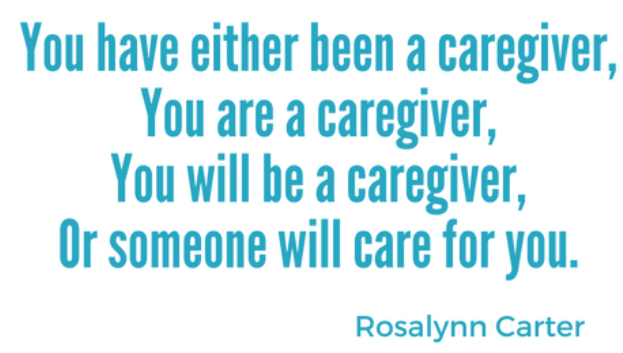
November '22 - Caregiver Burnout
November is National Family Caregiver's month, a time when we honor the more than 65 million Americans who care for their aging or disabled loved ones. Unpaid care provided by family caregivers makes up 90 percent of long-term care in the United States.
Here are three examples of dear friends of mine who have sacrificed their lives and well-being to care for family members:
- Sheila is a full-time therapist while caring for and living with her elderly mother who has been battling cancer for the last three years.
- Terry is on call 24/7 trying to keep her mentally ill son with an opiate addiction alive. Having a life of her own is impossible.
- Brandy cares for two special-needs children while working from home. The demands are relentless and her body is breaking down.
All three are physically, mentally, emotionally and spiritually exhausted. They don’t sleep well. They are often too tired to cook a healthy meal or to exercise. None of them has enough support or enough time to truly take care of themselves. They all struggle with their own health and well-being. (All three have auto-immune issues.) And they aren’t alone.
Some caregivers may seek out therapy, and helping them recognize the signs of burnout is crucial to preventing it. It is often overlooked with the constant demands of caring for a loved one.
14 Signs of Caregiver Burnout
- Lack of energy
- Overwhelming fatigue
- Sleep problems (too much or too little)
- Changes in eating habits; weight loss or gain
- A feeling of hopelessness
- Withdrawing from, or losing interest in, activities you once enjoyed
- Neglecting your own physical and emotional needs
- Feeling like caregiving is controlling your life
- Becoming unusually impatient, irritable or argumentative with the person/people you’re caring for and/or with others
- Anxiety about the future
- Depression or mood swings
- Difficulty coping with everyday things
- Headaches, stomachaches, and other physical problems
- Lowered resistance to illness
Having a prolonged level of high stress can cause physical and emotional difficulties. There are many things you can do to help better manage your stress and improve your well-being and health. Try sharing the tips in the attached handout below when your client needs some relief. In addition, I'm sharing a set-up from my Expansion Soul Spotting class that can be very helpful for struggling caregivers.

As therapists, we are also caregivers, and our signs of burnout may also include:
- Feeling relieved when clients cancel
- Starting sessions late or ending them early
- Finding yourself not paying attention when clients speak
- Feeling as if you need to drag yourself into work every day
- Forcing your theory or technique instead of adapting to a client’s wishes
- Feeling a decline in empathy
- Experiencing disturbed sleep
- Noticing blurred boundaries with clients
If you've identified with any of these signs, it's time to reset and recharge. You know the drill, because you have probably told your clients a time or two: put on your oxygen mask first. Modeling self-care will help you and your clients. To utilize more self-care in your work life, check out this handout below.

